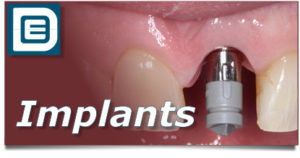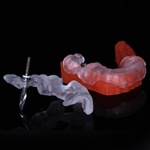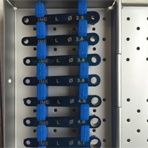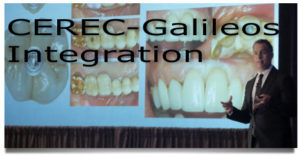“Perfectionism: Friend or Foe?”
(This is Part Two of a Three Part Series on Perfectionism in Dentistry)
STEP 1: Recognizing Perfectionism
Perfectionism affects how one feels, thinks and behaves. In dentistry, how we view the spectrum from “clinically acceptable” to “perfection” is where most of us live clinically on a daily basis. So how do we quiet the noise in our heads that says, “Yea, but I could or should have…?” Please read the information below to see if you can identify with any of these comments.
Examples of Perfectionistic Feelings:
Have you ever had any of the following thoughts or feelings?
- Negative feelings with self-criticism.
- Seeing mistakes as failures instead of learning experiences.
- Frustration, depression, anger, or anxiety.
- Fear of loss of respect from others due to your mistakes.
- Think of imperfect people as second-rate or losers.
- The need to always be perfect, first or the best.
- I have to be perfect or other people will think less of me.
- Second best is never good enough.
- If I’m going to do something, I must do it right the first time.
- Excellence is for winners, not second best.
- I must be perfect and not make a mistake.
- I can’t live up to my own/others high standards.
- I doubt my competencies sometimes.
- Self-doubt is seen as weakness by self/others.
- I’m a very important person.
- Things must appear neat and in order.
- I will never accept someone being upset with me.
- People must always like me.
- I should always be able to predict problems and outcomes.
Some of the previous statements we’ve all experienced at one time or another. Below are potential signs of perfectionism that dentists sometimes experience.

Psychologists typically identify perfectionism in three forms:
- Self-directed perfectionism: Perfection is determined by your standards,
not someone else.
“My cosmetic case was not good enough to my standards so I must redo the case so that it will be “perfect”.
- Socially prescribed perfectionism: You feel that others expect you to
perform to the highest standard all the time when in reality they may not.
“I would never show my finished root canal on radiograph to my study club
because I am sure others do the procedure better than me.”
- Other-oriented perfectionism: You criticize other dentists and their work
because it doesn’t meet your perfectionistic standards without knowing the conditions and limitations the dentist worked under.
“I would never perform substandard dental work like this dentist” and “I can’t believe how much “bad dentistry” I have seen in my career from other dentists.”
Mistakes, high standards, expectations of others, self-acceptance, self-doubt, and the need to control are key areas that perfectionists struggle with daily. It can be paralyzing and self-destructive, limiting one to move forward in practice and life.
One of the main areas of stress that dentists deal with is when a case or procedure doesn’t go the way we had planned. We may see this as a personal failure. However, accepting our imperfection or lack of patient compliance in following recommendations may lead us as seeing this as a potential learning experience. An example would be a short but closed margin on a crown that will work fine (it is not “perfect” but clinically acceptable) or a non-compliant patient with periodontal disease that doesn’t respond the way you ideally want. We can learn from both situations:
Is it absolutely necessary clinically for a successful outcome to redo a crown with a short but closed marginal? If so, why?
The non-compliant periodontal patient may need more instruction and motivation on home care before proceeding with restorative work, or possibly a referral to a periodontist.
Self-acceptance is hard for all of us because it requires us to “see our humanity” and accept outcomes that are less than desired. It is truly amazing to me that even with our human shortcomings that a majority of our dentistry serves the public well and for a long time. It goes without saying that I am not advocating or accepting of “sloppy work” but when our best efforts aren’t “perfect”, we have a choice to accept the clinically acceptable results or obsess and catastrophize the outcome because it wasn’t “perfect”. Acceptance and re-evaluation are the keys to lessen the debilitating effects of perfectionism while improving patient care.
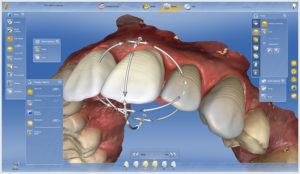
Examples of Perfectionistic Thinking:
Black-and-white thinking– “My dental work must be perfect because second best is for losers” or “If my preps aren’t perfect the crown won’t fit properly and it will fail”.
Catastrophic thinking– “I would never ask a colleague for help because it would make me look like I didn’t know what I was doing” or “I get upset when people don’t like me and leave my dental practice to go to another practice”.
Probability overestimation– “Even though I am prepared for the root canal treatment I know I’ll forget a step and the outcome will not be good”.
Should statements– “I should always be in control without being anxious” or “I should never have a paresthesia from a mandibular block because my technique is always correct”.
Examples of Perfectionistic Behavior:
- Chronic procrastination
- Difficulty completing tasks
- Giving up easily
- Overly cautious and thorough in tasks
- Excessive checking
- Constantly trying to improve things by re-doing them
- Agonizing over small details
- Making elaborate “to do” lists
- Avoiding trying new things and risking making mistakes

The next installment will address how to overcome perfectionism and reward yourself when the burden of perfectionism is lessened.




